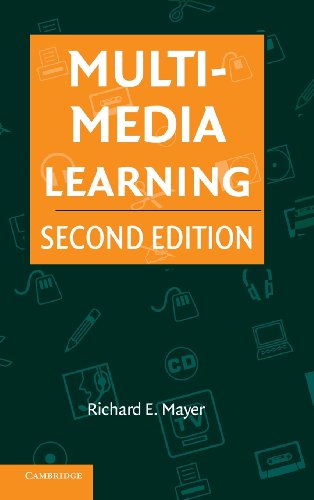Articoli correlati a Multimedia Learning

Sinossi
An evidence based, rigorous text reviewing 12 principles of experimental studies grounded in cognitive theory of multi-media learning.
Le informazioni nella sezione "Riassunto" possono far riferimento a edizioni diverse di questo titolo.
Informazioni sull?autore
Richard E. Mayer is Professor of Psychology at the University of California, Santa Barbara, where he has served since 1975. He is the author of Multimedia Learning (Cambridge University Press, 2001) and editor of The Cambridge Handbook of Multimedia Learning (Cambridge University Press, 2005). In 2008 he received the American Psychological Association's Distinguished Contributions of Applications of Psychology to Education and Training Award.
Le informazioni nella sezione "Su questo libro" possono far riferimento a edizioni diverse di questo titolo.
EUR 9,90 per la spedizione da Germania a Italia
Destinazione, tempi e costiCompra nuovo
Visualizza questo articoloEUR 25,80 per la spedizione da U.S.A. a Italia
Destinazione, tempi e costiRisultati della ricerca per Multimedia Learning
Multimedia Learning
Da: Buchpark, Trebbin, Germania
Condizione: Sehr gut. Zustand: Sehr gut | Sprache: Englisch | Produktart: Bücher. Codice articolo 4674640/202
Quantità: 2 disponibili
Multimedia Learning
Da: Toscana Books, AUSTIN, TX, U.S.A.
Hardcover. Condizione: new. Excellent Condition.Excels in customer satisfaction, prompt replies, and quality checks. Codice articolo Scanned0521514126
Quantità: 1 disponibili
Multimedia Learning
Da: World of Books (was SecondSale), Montgomery, IL, U.S.A.
Condizione: Good. Item in good condition. Textbooks may not include supplemental items i.e. CDs, access codes etc. Codice articolo 00032276515
Quantità: 1 disponibili

